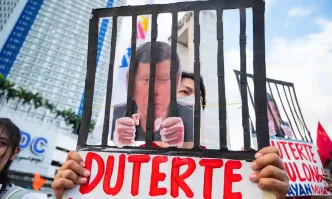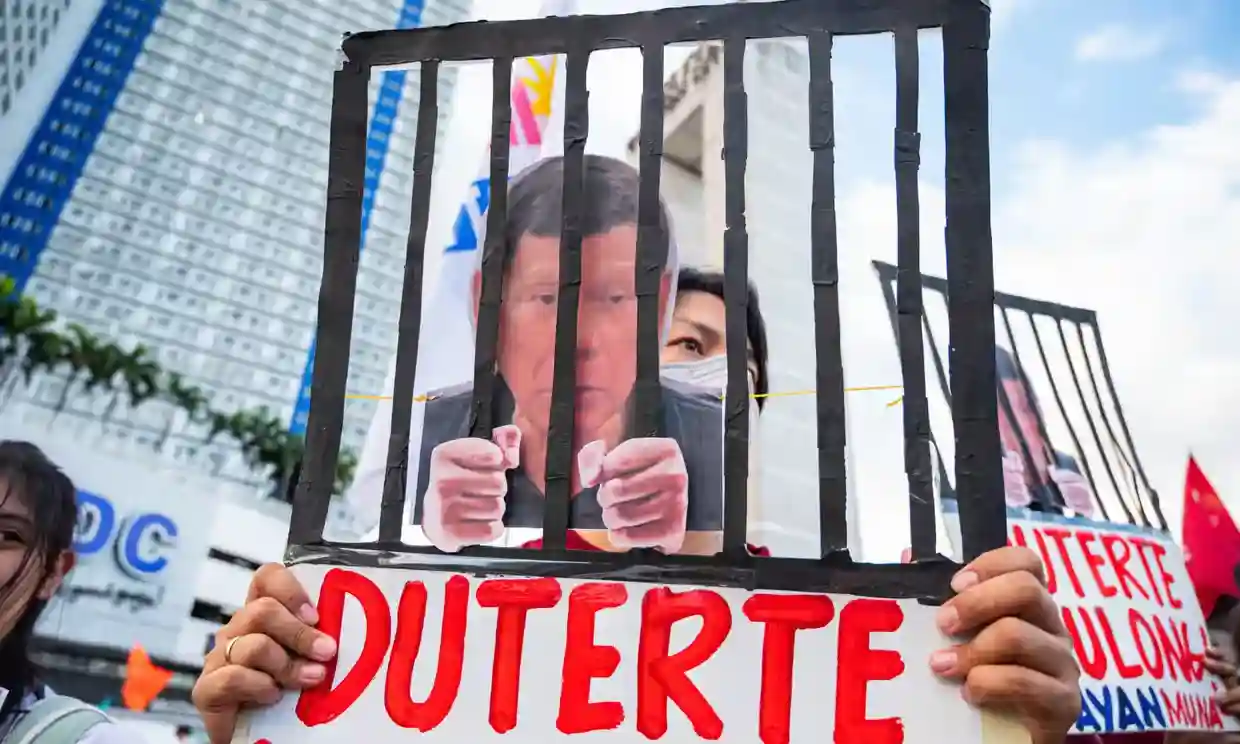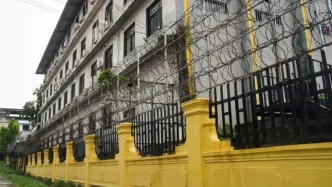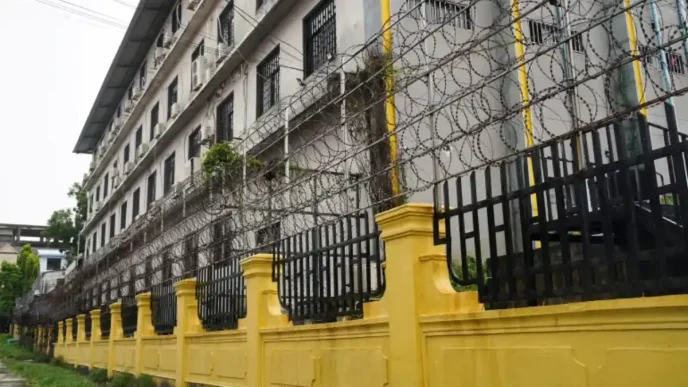Vera Lennox, South East Asia Correspondent
The Philippines stands at a crossroads as Vice President Sara Duterte faces an impeachment trial in June 2025, charged with constitutional violations and betrayal of public trust. Accused of misusing ₱125 million in confidential funds and red-tagging teachers’ organizations, Duterte’s case tests the nation’s ability to hold its highest officials accountable. If proven, the allegations could reshape fiscal oversight and human rights protections, but legal experts stress the case remains pending, with no guilt assumed. As the Senate prepares to hear evidence, the trial looms as a defining moment for democratic institutions in Southeast Asia’s oldest democracy.
Filed in December 2024 and endorsed by over 215 House lawmakers, the impeachment complaint alleges that Duterte, as vice president in 2022, disbursed ₱125 million in confidential funds without clear budgetary authorization, potentially breaching fiscal laws. It further claims she labeled teachers’ organizations as communist insurgents—a practice known as red-tagging—while serving as Education Secretary, raising human rights concerns. The Senate impeachment court, set to convene on 2 June, will weigh these charges, with a verdict expected by October 2025. The outcome could set lasting precedents for public fund usage and political accountability.
Atty. Darwin Angeles, a constitutional law scholar at the University of the Philippines and De La Salle University, underscored the trial’s gravity. “Impeachment is not only a means of securing accountability of the highest public officers but also a test for our democracy,” he told the Philippine Daily Inquirer. “The disposition of this impeachment proceeding is a seminal moment by which our present democratic institutions will be judged by history.” With public trust in governance faltering—a 2024 survey showed only 35% confidence in the Office of the Vice President (OVP)—the trial’s transparency will be scrutinized.
Constitutional Standards and Potential Implications
The 1987 Constitution lists three relevant impeachment grounds: culpable violation of the Constitution, betrayal of public trust, and other high crimes. Angeles outlined the criteria for a culpable violation, tied to the alleged fund misuse: “The impeachable officer committed a violation of the Constitution; in committing the violation, the impeachable officer acted in his/her official capacity or utilized his powers; and the violation was committed willfully and intentionally.” Unintentional errors or good faith mistakes, he noted, do not qualify.
Supreme Court rulings clarify these standards. In Bote v. San Pedro Cineplex Properties, Inc. (2020), the Court held that only official acts can constitute constitutional violations, excluding private misconduct. On intent, Angeles cited a 2018 dissent by then-Senior Associate Justice Antonio Carpio in Republic v. Chief Justice Sereno: “Culpable violation of the Constitution must be understood to mean willful and intentional violation of the Constitution and not violations committed unintentionally or involuntarily or in good faith or through an honest mistake of judgment.” Angeles endorsed this view: “Justice Carpio’s view is correct considering that it aligns with the intent of the framers of the Constitution.”
The confidential funds charge hinges on 2022 OVP expenditures, flagged by the Commission on Audit (COA) for irregularities, including ₱73 million in unliquidated expenses. Angeles highlighted a legal principle: “Public funds appropriated for a particular purpose cannot be diverted, utilized or spent for a different purpose than originally contemplated.” If proven in the Senate trial, such misuse could constitute a culpable violation, potentially leading to Duterte’s removal and criminal charges for technical malversation under Article 220 of the Revised Penal Code, which carries up to 12 years’ imprisonment. The case remains pending, and no guilt is assumed pending Senate findings.
Betrayal of public trust, the second charge, covers acts that erode public confidence, even if not criminal. Citing the 2012 Supreme Court decision in Gonzales III v. Office of the President, Angeles described it as a “catch-all phrase” for “all acts not punishable by statutes as penal offenses but, nonetheless, render the officer unfit to continue in office.” He added: “My opinion is that proof of actual damage or malice is not required. What is required is ‘bad faith,’ which is a standard that is distinct from actual damage.” Bad faith involves a “fraudulent and dishonest purpose” or “conscious wrongdoing.”
The red-tagging allegation, tied to Duterte’s Education Secretary role, invokes this standard. Angeles, cautious due to the case’s sub judice status, noted: “The standard of whether such act may be considered as ‘betrayal of public trust’ will depend on whether the alleged act of red-tagging was committed with ‘bad faith.’” If the Senate finds evidence of bad faith—such as deliberate targeting of teachers’ groups with harmful intent—it could justify conviction for betrayal of public trust, potentially setting a precedent against red-tagging in public office. Red-tagging, often linked to anti-communist campaigns, has been criticized for endangering lives, but the allegation remains unproven.
“Other high crimes,” the third ground, includes severe offenses like bribery or murder, punishable by life imprisonment or reclusion perpetua. Angeles clarified: “This contemplates serious or heinous crimes that are punished severely under Philippine criminal law.” Whether Duterte’s alleged acts meet this threshold depends on Senate evidence, with no conclusions drawn at this stage.
Impeachment Process and Historical Context
The Constitution assigns the House exclusive power to initiate impeachment, requiring a one-third endorsement (106 of 316 members) to send a complaint to the Senate. Duterte’s case, backed by 215 signatures, followed this path, echoing the 2012 impeachment of Chief Justice Renato Corona. “The procedure… does not apply to a verified impeachment complaint that is signed by at least 1/3 members of the House of Representatives,” Angeles explained, citing the Corona precedent.
The Senate, as an impeachment court, requires a two-thirds majority (16 of 24 senators) to convict, potentially barring Duterte from future office. The trial, starting 2 June 2025, will examine COA reports, witness testimonies, and evidence on red-tagging. Corona’s conviction for undeclared assets (20-3 vote) set a high bar; Duterte’s case, involving systemic issues like confidential funds, may prove more complex.
Broader Stakes for Philippine Democracy
The trial’s implications extend beyond Duterte’s fate. Confidential funds, often allocated for intelligence with minimal oversight, have long sparked debate. “Definitely it will set a precedent,” Angeles said, noting the Constitution’s bicameral design ensures robust scrutiny. If misuse is proven, new guidelines could tighten fund accountability, impacting agencies nationwide. Conversely, a failure to convict might embolden lax oversight, undermining fiscal discipline.
Red-tagging allegations carry human rights weight. Groups like the Alliance of Concerned Teachers have faced harassment after being labeled communist fronts, a practice linked to violence under Rodrigo Duterte’s presidency (2016-2022). If the Senate substantiates bad faith in Duterte’s alleged actions, it could deter such tactics, strengthening free expression. These allegations remain under review, with no findings yet.
The Philippines’ democratic resilience is on trial. Dynasties dominate politics—70% of Congress in 2022 had familial ties (Ateneo School of Government)—and public trust is low (35% for OVP, SWS 2024). The 1986 People Power Revolution and 82% voter turnout in 2022 reflect democratic vigor, but low political literacy (40% grasp policy issues, SWS 2022) fuels dynastic appeal. A transparent trial could restore faith; a flawed process might deepen skepticism.
A Pivotal Reckoning
As the Senate convenes, Angeles’ warning resonates: a “seminal moment” for democracy. The trial probes not just Duterte’s conduct but the strength of institutions to check power. If allegations hold, the fallout could redefine governance norms; if not, the Senate’s reasoning will still shape public perceptions. With the May 2025 elections fresh, the Philippines faces a chance to affirm its commitment to the rule of law, ensuring accountability endures as a democratic cornerstone.
















